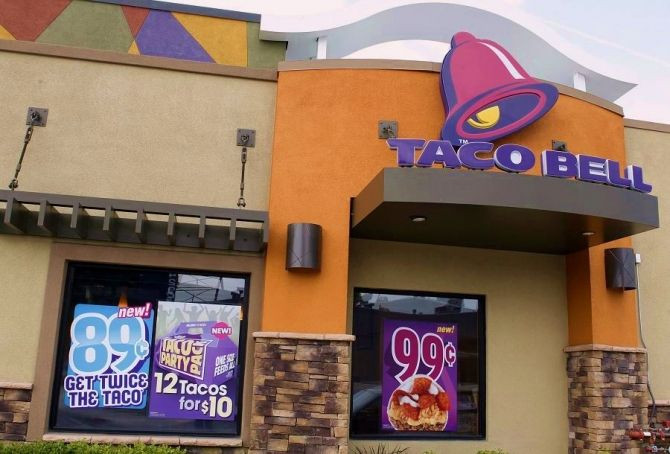Taco Bell Promises Healthier Options by 2020; Will Costumers Buy It?

Taco Bell is pursuing a more nutritional menu plan and they expect to roll it out by 2020 — but will food prices ultimately be the deciding factor on whether people choose the healthier items off the list?
The sixth-biggest fast-food chain in the U.S. made the announcement on Wednesday that it would be revising its menu to offer more nutritious meals. Working off of the USDA's federal dietary guideline, 20 percent of Taco Bell's combo meals will meet the nutritional requirments, but the company did not disclose the products they're testing to use or which meals on their menu actually meet the current standards.
According to Taco Bell, the new options would reduce the amounts of trans fats consumed by their customers — that is, assuming that restaurant-goers will avoid buying the higher caloric tacos and sodas thatw ill still be available on the menu.
And that's a lot to ask, particularly in light of a new study published in Journal of Marketing that found that the price between the unhealthy options and the nutritional one is the ultimate deciding factor — not nutritional content.
"If the price is cheap, they're going to buy that [food item]," said Yu Ma, marketing professor at the Alberta School of Business and lead author of the study. "There are lots of things you can do just by changing the price of healthy food."
Ma studied consumer spending behavior and found that people who are diagnosed with major health issues will continue to eat unhealth, fatty food unless the cost of making the switch to healthier options is more affordable.
"If you compare the price of healthy, whole-grain bread versus regular white bread, there's a cost increase between them," Ma said. "Sometimes, if you have a family to feed, it's hard to justify the price difference."
Taco Bell's CEO Greg Creed said that the past standards focused on taste and cost of ingredients. Going forward, the fast-food purveyor will require that the healthier options meet nutritional values.
Taco Bell executives say the future better-for-you options will retain the flavors that customers love, but of course that remains to be seen. In the meanwhile, other gut-busting options are still being heavily marketed, including the Volcano Nachos, which is 990 calories and includes 1570 milligrams of sodium — the recommended daily intake of sodium is 2400 mg.
While the fast-food chain is on a higher path to creating more balanced options, how this new plan would affect their business is another matter.
According to Ma's study, businesses should take greater responsibility of the health of customers and look at marketing as a way to enhance their brand through benefiting customers. For start-up businesses, it's a harder road.
"They might have to sacrifice some short-term profit, but once they build up their brand name, and the goodwill in the consumer's mind, then it's a win-win for the customers and the company in the long run."
Published by Medicaldaily.com



























